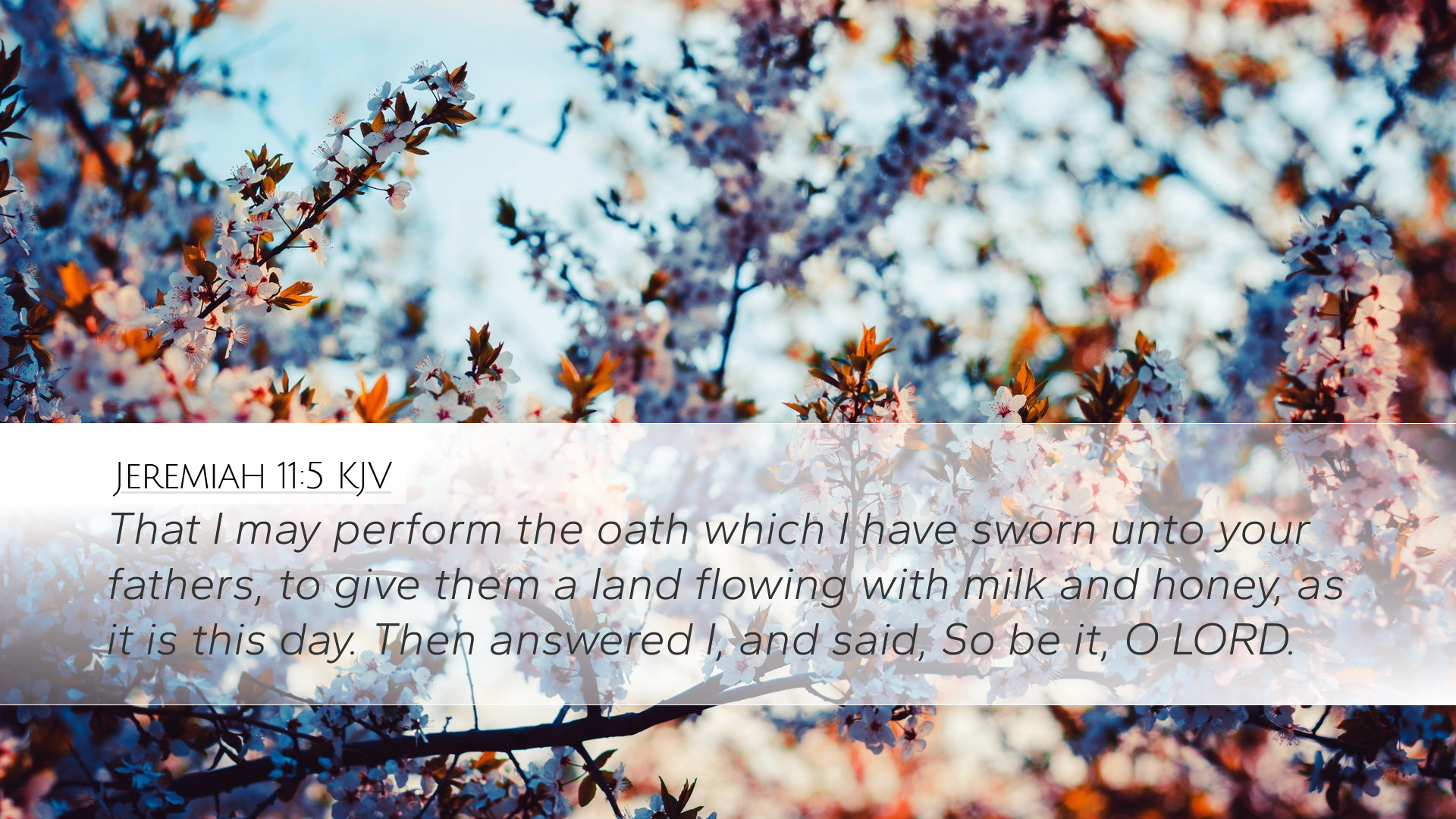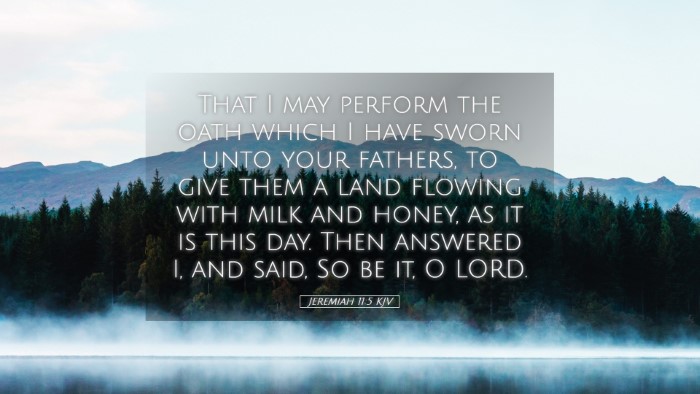Commentary on Jeremiah 11:5
Jeremiah 11:5 states: "That I may perform the oath which I have sworn unto your fathers, to give them a land flowing with milk and honey, as it is this day."'
Introduction
This verse encapsulates God’s covenant promise to Israel, highlighting both His commitment and the conditions of their loyalty to Him. Biblical scholars and theologians emphasize the importance of understanding this promise within the larger narrative of the Old Testament.
Contextual Background
The Book of Jeremiah is often classified as a prophetic book, focusing primarily on the themes of judgement, repentance, and hope. Jeremiah prophesied during a critical period leading up to the Babylonian exile, where the people of Judah struggled with fidelity to God amidst societal corruption.
Insights and Commentaries
Examination of the Oath
As highlighted by Matthew Henry, the “oath” referenced in this verse signifies God's unwavering promise to Abraham, Isaac, and Jacob. This divine assurance was never conditional on any inherent worth of the people but stemmed purely from God's character and purpose.
-
Promise of the Land:
This land, described as "flowing with milk and honey," symbolizes abundance and divine provision. Albert Barnes elaborates that this not only promises a tangible inheritance but illustrates God’s care for His people, indicating a space where they can flourish spiritually and physically.
-
Covenant Relationship:
Adam Clarke amplifies this by asserting that the covenant was relational in nature, requiring reciprocal faithfulness. The emphasis on their forefathers aligns with the theme of generational faithfulness, echoing throughout Israel’s history.
The Nature of Divine Promises
The verse also portrays the depth of God's integrity and faithfulness. Matt Henry notes that even amid Israel’s disobedience, God remained loyal to His covenant. This aspect serves as a significant reflection on the nature of God—His promises are not nullified by human unfaithfulness.
Modern Applications
The implications of Jeremiah 11:5 extend far beyond its immediate context. Albert Barnes emphasizes that for modern readers, understanding God’s promises can encourage believers, particularly pastors and ministry leaders, to hold fast to the teachings of scripture despite contemporary challenges. It affords a spiritual journey rooted in divine fidelity.
-
Encouragement for Leadership:
Pastors and church leaders can draw strength from God’s unchanging character, inspiring them to lead with the same commitment and faithfulness expected of the congregants.
-
Faith in Adversity:
For those undergoing trials, the assurance of God’s promises—represented through the metaphor of land flowing with milk and honey—serves as a reminder of the hope and future glory promised to faithful believers.
Conclusion
Jeremiah 11:5 serves as a pivotal reminder of God’s faithfulness in His covenant, urging both individuals and communities to reflect on their commitment to God. The insights gathered from public domain commentaries reveal the layers of meaning embedded within this verse, inviting deeper contemplation and application in the life of faith.


